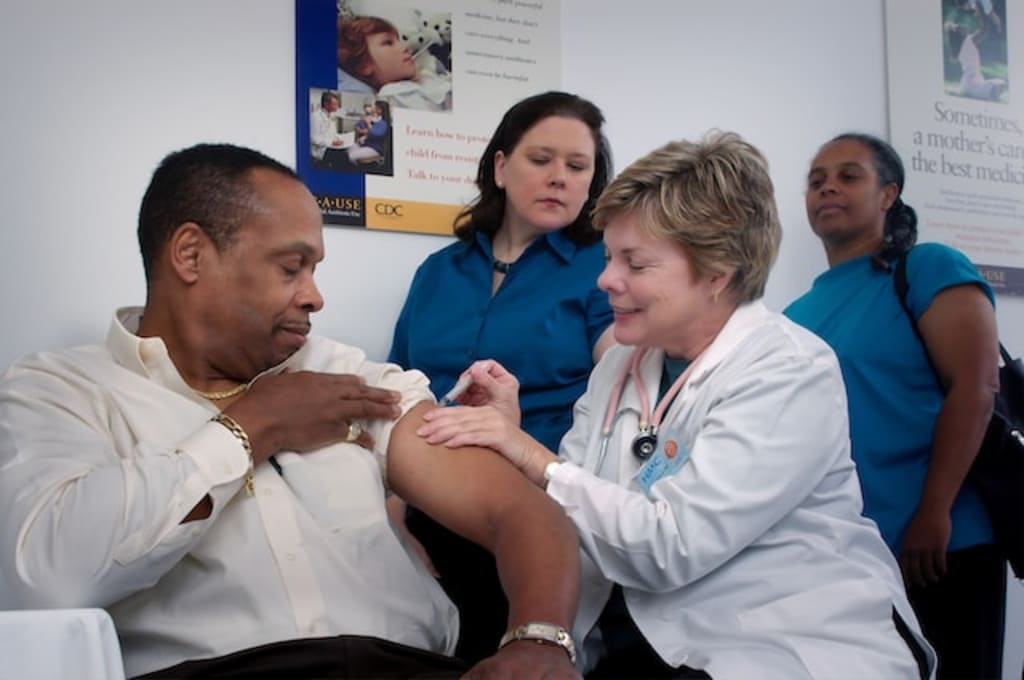How Medicare Coverage Benefits the Elderly
Thanks to Medicare, retirees no longer have to worry about paying for medical care, freeing them up to make the most of their golden years.

Medicare is a fantastic healthcare program that helps to ensure the health and well-being of America's senior citizens. As we become older, our healthcare requirements and costs naturally increase in complexity. Medicare's all-inclusive coverage of medical care, including doctor visits, hospital stays, and prescription prescriptions, helps to ease this financial strain. Thanks to Medicare, retirees no longer have to worry about paying for medical care, freeing them up to make the most of their golden years.
Medicare Coverage Benefits the Elderly
People who are 65 or older, as well as individuals with certain impairments or chronic health problems, may qualify for Medicare, a government health insurance program. The Medicare plans, just like medicare advantage plans in Nebraska, include comprehensive protection for things like doctor visits, prescription medicines, hospital stays, and even preventative care.
Ease of Obtaining Adequate Medical Care
Medicare provides seniors with financial support for medical care, including doctor visits, hospital stays, and a wide variety of procedures such as surgeries, cancer treatments, and rehabilitation programs. Coverage like this makes it easier for seniors to take care of their ongoing medical needs and get the preventative measures they need, including annual checkups and cancer screenings.
Peace of Mind
The peace of mind that comes with Medicare coverage is another major perk. Medicare may relieve the financial strain of rising healthcare costs on seniors by covering some of their medical bills. Part A of Medicare, which covers inpatient treatment, is provided at no cost to seniors, while Part B, which covers outpatient services, has a nominal monthly charge.
Provider Selection
Medicare coverage also allows seniors to pick and choose which doctors and hospitals they want to use. In contrast to those with certain commercial insurance plans, Medicare recipients may visit any licensed physician or hospital in the country. Because of this adaptability, elderly people may get the care they need whenever it is most convenient for them.
Enrolling in Medicare: Key Dates and Considerations for Seniors
Seniors who are close to turning 65 should start thinking about Medicare enrollment right now. However, it may be difficult to figure out the system due to the multiple enrollment alternatives and deadlines.
Pharmaceutical Insurance
Part D is a supplement to Original Medicare that provides coverage for prescription drugs not covered by Original Medicare. The coverage of prescription drugs is an important factor for seniors to think about when choosing a plan.
Medicare Supplement Insurance (Medigap)
Medigap policies are supplemental insurance plans that assist pay for some of the expenditures that beneficiaries of Original Medicare are responsible for paying out of cash. Medigap plans may vary greatly, so it's important for seniors to do their homework before choosing one.
Consider the Costs
The premiums, deductibles, coinsurance, and copayments that come with each Medicare plan should be taken into account by seniors. The best healthcare choice for an elderly person may be determined by weighing these expenses.
Things To Avoid in Medicare as Elderly
Failing to Enroll on Time
Not enrolling in Medicare on time is a major mistake that should be avoided. To avoid paying a late enrollment penalty, seniors should sign up for Medicare during the Initial Enrollment Period. If you miss your Initial Enrollment Period, Medicare Part B premiums might be much more expensive.
Not Understanding the Coverage
Not comprehending one's Medicare coverage is another common blunder made by the elderly. Read your policy carefully to learn what services are covered and what you will be liable for paying for. This will guarantee that you get the treatment you need without breaking the bank.
Overlooking Preventative Care
Preventative treatment is often neglected by the elderly, which may lead to more significant health problems down the road. Vaccinations, cancer screenings, and wellness checkups are just some of the preventive treatments covered by Medicare. Using these resources, you may prevent or detect health issues before they become serious.
Conclusion
When you reach retirement age, Medicare becomes an integral part of your healthcare. It gives you access to several treatments and procedures that are essential to your health. To get the most out of your Medicare benefits, you need to be aware of both the things to do and the things to avoid. You may have a better and happier life in old age if you remember these tips and make use of Medicare's offerings.






Comments
There are no comments for this story
Be the first to respond and start the conversation.